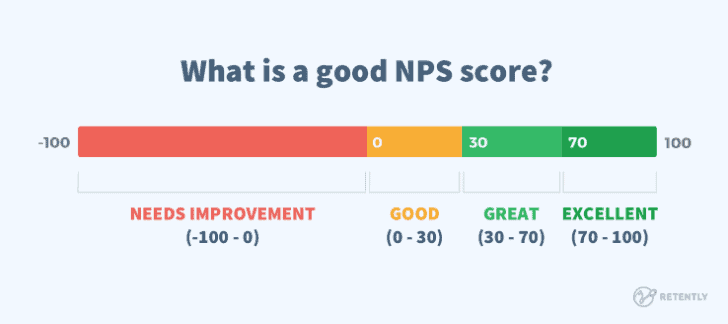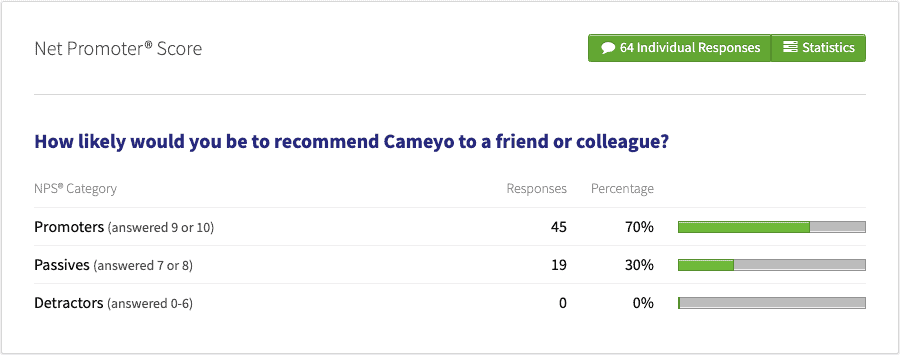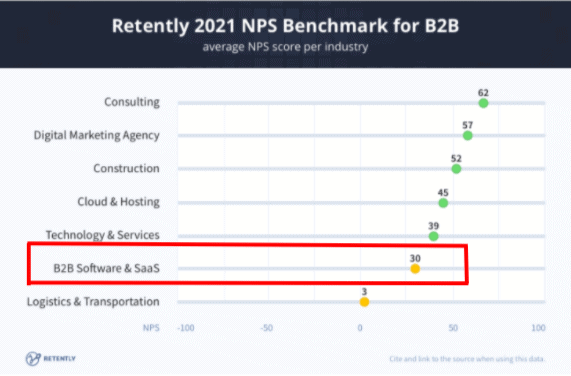Chances are that if you were buying a TV, you’d ask around to get feedback and recommendations from your friends. It’s in our nature to seek recommendations from our peers. And the more critical the decision, the more recommendations you’ll likely want to gather. This is why paying attention to Net Promoter Scores (NPS) when evaluating business-critical technology is so important. If you’re evaluating digital workspace technologies that you’ll be relying on to securely enable remote & hybrid productivity for all of your employees – you want to make sure that other organizations like yours have had success with the solution you’re evaluating. So much so that they would actively recommend it.
So, what is NPS?
Before we go any further, let’s talk about what NPS scores actually mean. Net Promoter Score (NPS) is the most common metric used in customer experience programs. NPS measures the loyalty that customers have to a particular company. First developed in 2003 by Bain and Company, NPS is now used by millions of businesses to measure and track how their customers perceive them based on one simple question:
How likely is it that you would recommend [Organization X/Product Y/Service Z] to a friend or colleague?
Respondents then give a rating between 0 (not at all likely) and 10 (extremely likely) and customers then fall into one of 3 categories based on their response:
- Promoters rate the company with a score of 9 or 10 and are loyal and enthusiastic customers.
- Passives give the company a rating of 7 or 8. They are satisfied with your service but not happy enough to be considered promoters.
- Detractors respond with a score of 0 to 6. These are unhappy customers who are unlikely to buy from you again, and may even discourage others from buying from you.
Why does this matter to you?
Imagine that you’ve asked a friend about their experience at a restaurant. If they told you: “Well, technically they provided us with food, and that food didn’t make us sick, so I’d give it a 5 out of 10” – I’m guessing you wouldn’t visit that restaurant (unless you’re way more adventurous than me). And you certainly wouldn’t call your friend a fan (or promoter) of that restaurant based on that feedback. They didn’t say anything negative, per se, but it’s also clear that they weren’t endorsing the restaurant.
A company’s NPS score helps simplify that evaluation of people’s true feelings for their products and services. It clearly delineates who is a truly enthusiastic supporter & promoter of a company, who was merely “satisfied”, and those who would not recommend a company. So, what is a good NPS score?
The following chart from Retently helps illustrate the value of different NPS scores.

A “great” NPS score is anything over 30. And an “excellent” NPS score is anything 70 or above.
Cameyo’s NPS Score is 70
In a June 2021 survey of Cameyo customers, our NPS score came out to an “excellent” score of 70. The average score given to Cameyo by each customer respondent was 9.2 out of 10.


How does this compare to our particular industry average, you may ask?

The average NPS score for B2B Software & SaaS companies is 30. Cameyo’s NPS score of 70 is over double the industry average score. And better yet, Cameyo has zero “detractors.” None of the customers who responded to the NPS survey identified themselves as unhappy.
Let us show you why
The point of sharing these scores and stats with you is simply to let you know that your peers can attest to their satisfaction with Cameyo and the role we play in helping them to enable simple, secure, and cost-effective remote & hybrid work for all of their people. And if you want a deeper dive of WHY these customers love Cameyo, please check out the dozens of case studies we have published here. Many of the customers in these case studies speak openly about how they either previously evaluated or used products from our larger competitors like Citrix, VMware, and Nutanix and clearly outline why they chose Cameyo instead. Even large Fortune 500 companies like Sanmina enthusiastically promote their use of Cameyo (see the full Sanmina case study here). We’re eternally grateful for the level of support and enthusiasm our customers have for Cameyo.
If your organization is looking for a way to give everyone simple and ultra-secure access to all of the apps they need to be productive from anywhere, Cameyo can help. We’d love to show you how with a personalized demo, which you can request here. Or if you’d prefer to take Cameyo for a test drive yourself, you can get started with your free trial here (no credit card required). And we’re always happy to put you in touch with some of our passionate customers as references, too.
